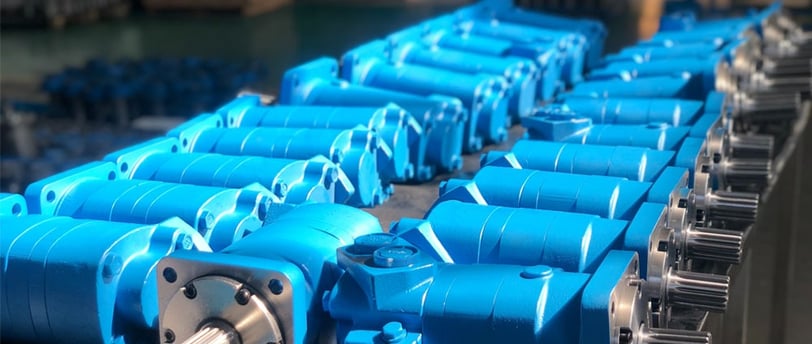Hydraulic Swing Motor Maintenance Skills
11/18/20242 min read


Introduction to Hydraulic Swing Motors
Hydraulic swing motors are critical components in numerous machinery, particularly in construction and mining equipment. These motors facilitate the rotation of heavy structures with precision and reliability. Understanding how to properly maintain hydraulic swing motors is essential for maximizing their lifespan and ensuring optimal performance. In this blog post, we will explore the key maintenance skills required to keep these motors in top working condition.
Routine Checks and Inspections
Regular inspections are a cornerstone of hydraulic swing motor maintenance. Ideally, operators should conduct a thorough check of the motor at least once a week. During these inspections, look for signs of leakage, which may indicate wear and tear in seals or connections. Additionally, check the hydraulic fluid level, as low fluid can lead to poor performance or motor failure. Pay close attention to abnormal noises or vibrations during operation, as these may point to underlying issues that require immediate attention.
Fluid Maintenance and Replacement
Maintaining the quality and quantity of hydraulic fluid is vital for the efficient functioning of hydraulic swing motors. The fluid acts as both a lubricant and a power transmitter, and its condition directly impacts motor performance. Operators should follow the manufacturer’s guidelines regarding fluid types and replacement intervals. Contaminated fluid can lead to increased wear on internal components, so it’s essential to replace it regularly and check for contaminants.
Servicing the Motor Components
Another critical aspect of hydraulic swing motor maintenance is servicing the individual motor components. Bearings, seals, and gears often require periodic inspection and replacement to prevent failure. Clean the motor case and remove any debris that could obstruct movement or lead to additional wear. If any parts show signs of damage or excessive wear, replace them immediately. Always use genuine replacement parts to ensure compatibility and maintain the motor’s integrity.
Conclusion
In conclusion, mastering hydraulic swing motor maintenance skills is key for anyone responsible for operating or maintaining heavy machinery. Implementing routine checks, ensuring proper fluid maintenance, and servicing individual components will not only enhance the longevity of the motors but also prevent costly downtime. By being proactive in maintenance, operators can ensure that their machinery operates safely and effectively in the long term.
